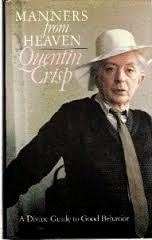Towles, Amor. A Gentleman in Moscow. New York: Viking 2016. Print.
At half past six on the twenty-first of June 1922, when Count Alexander Ilyich Rostov was escorted through the gates of the Kremlin onto Red Square, it was glorious and cool.
Drawing his shoulders back without breaking stride, the Count inhaled the air like one fresh from a swim.
Description:
OK, I admit I fought against continuing to read Amor Towles' novel, A Gentleman in Moscow after the first few pages as is my usual practice. It was recommended by a friend as her all-time favorite, a praise that is hard to ignore. But the action was non-existant, focusing on a single character living in a luxury hotel. Not the type of book to hold my summer reading interest.
But I was so wrong. A Gentleman in Moscow grows on you slowly, embracing and relaxing you like a warm bath. And once I'd accepted the reality that Gentleman was not a piercingly hot shower of a thriller, I settled in to luxuriate in this world of style, grace, and people with interesting personalities and potential. Soon I was completely engulfed and found that the book just kept getting better and better.
In the early 1900s, Count Alexander Rostov, an aristocratic Russian, left his home in the elegant rooms of the Metropol Hotel in Moscow to live in Paris in the years prior to the Russian Revolution. But when he returns to live again in Moscow, he is detained and tried by the new rulers for the crime of representing the old order of aristocracy. He is labeled "a Former Person."
Count Rostov is sentenced to remain forever in Moscow. Specifically, he can never step foot outside the luxurious Metropol Hotel ever again. He is moved from his suite to a small attic room on a deserted floor of the hotel, allowed to take only a few bits of furniture and some clothes.
When you exile a man into his own country, there is no beginning anew. For the exile at home ... the love for his country will not become vague or shrouded by the mists of time. In fact... these men are likely to dwell on the splendors of Moscow more than any Muscovite who is at liberty to enjoy them.As a gentleman, Count Rostov accepts his fate and vows to "master his circumstances." While the months and years pass, his lifestyle and the hotel workings remain civilized, while hints of a new Russia filter into this intimate world.
For his part, the Count had opted for the life of the purposefully unrushed...He was wise enough to know that life does not proceed by leaps and bounds. It unfolds. At any given moment, it is the manifestation of a thousand transitions.His daily life consists of partaking in the elegant amenities of the hotel. He visits with the staff in the hotel's restaurants, front desk, barbershop, switchboard, and sewing room. Armed with a pass key, the Count explores hidden "rooms behind rooms and doors behind doors," where once he secretly eavesdropped on the scintillating debate of the All-Russian Union of Railway Workers to amend their charter's use of the word "facilitate."
For what matters in life is not whether we receive a round of applause; what matters is whether we have the courage to venture forth despite the uncertainty of acclaim.He still savors the food at the Metropol's elegant restaurant, although he must suffer through the insensitive service of an untrained waiter, and drink unknown wine from bottles that have had their labels removed to promote equality among all vintages. On the roof, the Count learns that the honey from the bees living under the roof tiles changes its taste with the seasons, moving from hints of lilacs to orange blossoms. Even waiting becomes a worthy topic for a gentleman to contemplate:
Like the wheeling of the stars...That is how time passes when one is left waiting unaccountably. The hours become interminable. The minutes relentless. And the seconds? Why, not only does every last one of them demand its moment on the state, it insists upon making a soliloquy full of weighty pauses and artful hesitations and then leaps into an encore at the slightest hint of applause.We readers wander through the Metropol with the Count, taste his food, converse with his friends, reflect on his past life, and observe the Russia he knows along with the new Russia he is learning about. It is a delightful way for us to be absorbed into the mind and life of a truly civilized, mannered aristocrat who always knows just what to say and do in any situation and with any person.
Maybe this all sounds dull and confined. But there are many characters who move in and out of the Count's cloistered life, providing highly interesting scenarios and challenges that play out over the years. As always, no matter the situation or person he encounters, Count Rostov remains elegant, unflappable, and the conqueror of his circumstances.
Who would have imagined [said Mishka, Rostov's best friend] when you were sentenced to life in the Metropol all those years ago, that you had just become the luckiest man in all of Russia.
____________________
If this book interests you, be sure to check out:
If this book interests you, be sure to check out:
Crisp, Quentin. Manners from Heaven: A Divine Guide to Good Behavior
No one is more proper, more scathing, more humorous than Quentin Crisp. Here he writes short essays on a variety of social situations and how a gentleman should handle each in a stylish, self-confident manner. Wonderful. Highly recommended. (previously reviewed here)

